Review for The Last of McGuinness
The Last of McGuinness
Director: Nigel McGuinness
“I'd like to feel good about myself again … ”
Introduction
I first met Nigel McGuinness in Doncaster, England, as an enthusiastic, possibly dribbling young fan attending a One Pro Wrestling show. Since then, I've had the pleasure of the Englishman's company on numerous occasions, be that as a fan, or in a professional capacity. Whichever has been the case, one thing has always been a constant, he has been an absolute gentleman, more than holding up his reputation as such within the industry.
My first interview with Nigel took place in 2007 during a wrestling card in Dublin. Following a fine defence of his Ring of Honor World Heavyweight Title, I was able to nab 10-15 minutes of his time. A constant barrage of excitable fans drove us increasingly further from our secluded spot and towards the icy chill of the outside world. This was fine in my book, but unfortunately for Nigel, he was still clad in only his wrestling trunks, as the biting Irish air nipped at his skin. I felt terrible, but the consummate professional Nigel was, he completed the interview most generously.
Nigel doesn't remember the encounter, after all, as ROH Champion, he was expected to represent the company to the media, and engaged in countless interviews. But I do remember it. As a young, irritating, and naive wrestling journalist, I relied on the success of such occasions. Nigel was the only person that night who lived up the promise of giving me some of their time. In the years since, he's showed similar generosity multiple times.
One of the truly "nice" guys in an industry filled with sharks and snakes, his story is one that almost anyone can empathize with.
Wrestling's a funny old thing. A still somewhat secretive industry, it is vastly misunderstood by the majority of the public at large. Admitting you like wrestling is still a taboo, life-soiling moment for many people, thanks to the ludicrous negative stigma that surrounds it. A wrestling fan also faces an eternity of ill-informed commentary from dullards hung up on the "it's not real" thread.
Of course it isn't "real". In 2013 we can all admit that. It's a non-factor for admirers however. Enjoying professional wrestling nowadays, especially for an adult, is being able to appreciate this very unique art form. A hybrid of sport, entertainment, and yes, art, it's often much more "real" than naysayers could ever hope to imagine.
2012 documentary, "The Last of McGuinness" should stamp out the nonsense once and for all. In the course of its near two-hour running time, former professional wrestler, Nigel McGuinness explains far more eloquently than I ever could, just why wrestling should be regarded as a sporting enterprise, why it is a physical art form of the highest order, and why being a part of the industry is so very real for him. Emotionally, one of the main thrusts of this documentary, is how the business he loves, ended up spitting him out after he had given it everything.
In 2011, Nigel announced his immediate retirement from the ring, at the age of just thirty four. A laundry list of injuries had contributed over the years to a decline in his health and physical well-being, that reduced his appeal to big-time employers, WWE, and TNA. Left with the choice of either de-habilitating himself to potentially life-altering condition by continuing to damage his body working for the smaller companies, he decided to walk away from active competition.
Throughout the course of his retirement tour in November 2011, he decided to film the trip. More than that though, making the film was an opportunity for him to seek a kind of redemption, as he was genuinely struggling with feelings of failure and bitterness.
This project got off the ground when McGuinness launched an appeal on Kickstarter, in order to raise the necessary funds to both self-finance the project, and support himself while he essentially took the editing role on as a full-time job. The target of $32,000 was reached in a matter of weeks, and the generosity of backers would eventually reach close to fifty-thousand. (Details about the making of/project coming together can be found on both Nigel's website, and in issue #79 of FSM magazine).
Film
The first thing that is noticeable about "The Last of McGuinness", is that it hardly looks like the work of an untrained novice. Although fundamentally basic, the menu, screen-shots, and titles, all look up-to-scratch and professional, not to mention the rather smart cardboard digi-pack that this "Director's cut" comes encased in. Nigel spent a great deal of time learning how to edit the feature himself, and he has acquitted himself superbly. In-ring action is inter-sped with talking heads, documentary footage of himself, and enhanced by well-chosen music. In fact, the tracks used throughout are uniformly superb. This is one of the best looking wrestling documentaries on the market, outside of WWE's own, in-house products.
McGuinness narrates the documentary, a vivid concoction of stories and insights taken from his retirement tour, some privately, some at arenas. Right from the outset, it's a difficult viewing experience at times.
The film runs the gamut of negative experiences that a professional wrestler can endure. And it isn't just Nigel's story, of the injuries, the firings, and being forced to take a job at a deli counter to make ends meet. Other grapplers, such as the most underrated wrestler of his generation; Jimmy Jacobs, have their doubts. The sad tale of Andre Baker is related, a grappler revealed to have been working while secretly HIV positive. Even the story of Nigel's ROH nemesis, and close friend, Bryan Danielson (WWE's Daniel Bryan), comes laced with sadness, as Nigel admits that coming to terms with Bryan's success, while he found WWE's door closed to him, is a great strain on him. During the making of the documentary, Pro Wrestling Noah favourite, Bison Smith also passed away. This leads to a heartbreaking side-step into reflecting on lives lost and the really dark side of the industry.
Introspective clips show Nigel at night, either alone in hotel rooms, or alongside other colleagues, often questioning and doubting his own career. He clearly spent a long time struggling to come to terms with his own self-imposed notion that he had failed in achieving his dream. In one of the documentary's toughest moments, Nigel appears in Liverpool's Krazyhouse, a massive rock-club usually throbbing with sweaty young blokes headbanging. On a poorly chosen night though, Nigel's appearance is sadly met with a few muffled rounds of applause, and the odd handshake. On more than one occasion, he breaks down entirely.
However, that's what holds this film together. It feels like a coherent, but substantial journey, and these tough times are tough, gritty but absolutely vital in order to come through at the end.
The film benefits enormously from Nigel's perseverance in acquiring footage to illustrate his tale. Hence ABC's 20/20 piece about wrestling is highlighted, and some of Nigel's biggest career moments are showcased, in snippets from Ring of Honor wrestling.
Much of this material really brings to life, and in some cases, drives home, the story that Nigel relates to us. The highlights of his career looks tremendous, especially when contrasted against the undoubted low-points.
Meanwhile, some of the candid moments with other wrestlers, are really uplifting. The viewer really gains a sense of the genuine kinship that can exist between performers who are traveling together on the road. There are noteworthy encounters with other guys who have experienced life in the WWE, such as Carlito & Brian Kendrick. Some of the most heartfelt and inspiring insight comes from Nigel's childhood friends, people who are still inspired by his pursuit of his dream, and the enormous achievements that he attained throughout. Among the best scenes, is one of Nigel's opponent, and long-term friend, "Shark Boy", telling us what it all means to him, and how much he cherishes his son coming out to watch him and share in the experience.
The real achievement of "The Last of McGuinness" though, is in it's unflinching depiction of the good alongside the bad. Displaying enormous restraint, McGuinness pulls no punches in putting himself out there, warts and all. He hasn't always been treated kindly by jaded wrestling fans, but he has enough passion to bravely put every inch of himself on the screen. In doing so, "The Last of McGuinness" is an incredibly potent, thought-provoking piece of work. It feels like a complete film too, with a beginning, ,middle and end, carried by a strong central narrative drive.
Extras
Included as part of the "Director's Cut" package, the "special edition", are several extra sections that total around one hour, forty five minutes of material. Much of this is removed from the main feature as a result of time constraints, as it isn't vital to the main thrust of the film. Nonetheless, it's stuffed with touching moments, and hilarious stories, and is pretty much worth the price of admission alone.
The basic, cheaper edition of the film, is missing the bonus material.
Also included, is a section devoted to the music featured within the documentary. This consists essentially of isolated chapters for thirteen songs, alongside a promotional still for each performer, along with their website details. It's a nice touch, as the music inclined really is integral to the mood of the piece.
Overall
The career of Nigel McGuinness is full of misfortune and irony. The finest wrestler to emerge from England thus far this century, it's typical that to tell his story properly, he was left to do it himself. Against the odds, Nigel has crafted a simply superb film. Filled with pathos and angst, only the most cynical of viewer could fail to empathize with the struggle that this man went through to achieve his dream, only to have that snatched away to enough of a degree that he was left feeling so broken.
What's next for Nigel McGuinness? Some forecast an unlikely return to the ring eventually, and Nigel's own ambitions perhaps suggest a career in acting, or the comedy circuit. Others, such as myself), would like to see him continue to impose himself as a character or commentator on Television, and perhaps earn what he is unquestionably due through that route. Either way, regardless of where he goes next, in "The Last of McGuinness, he has left behind a gob-smacking record of his time in the ring. For fans of wrestling, and simply viewers who enjoy a heartfelt account of a remarkable story, this is an essential film, and a brilliant document of life as a modern independent wrestler.
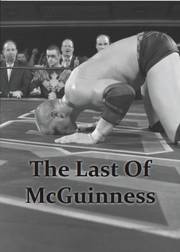










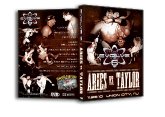



























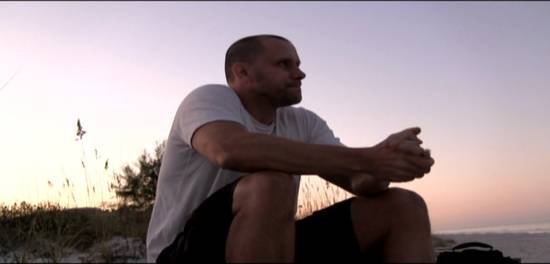
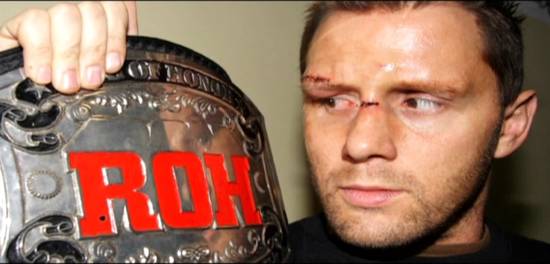
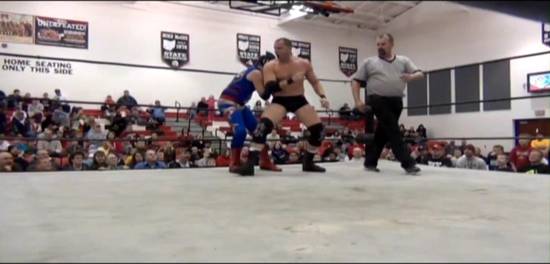
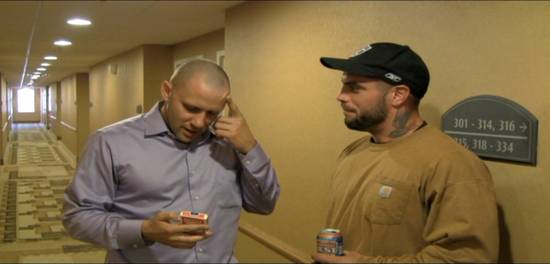
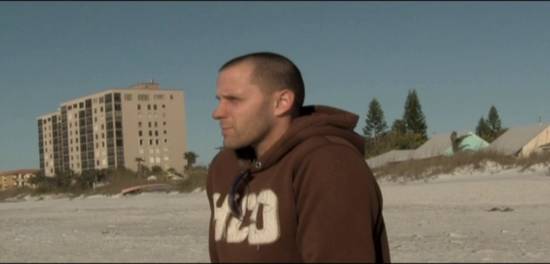
Your Opinions and Comments
Be the first to post a comment!